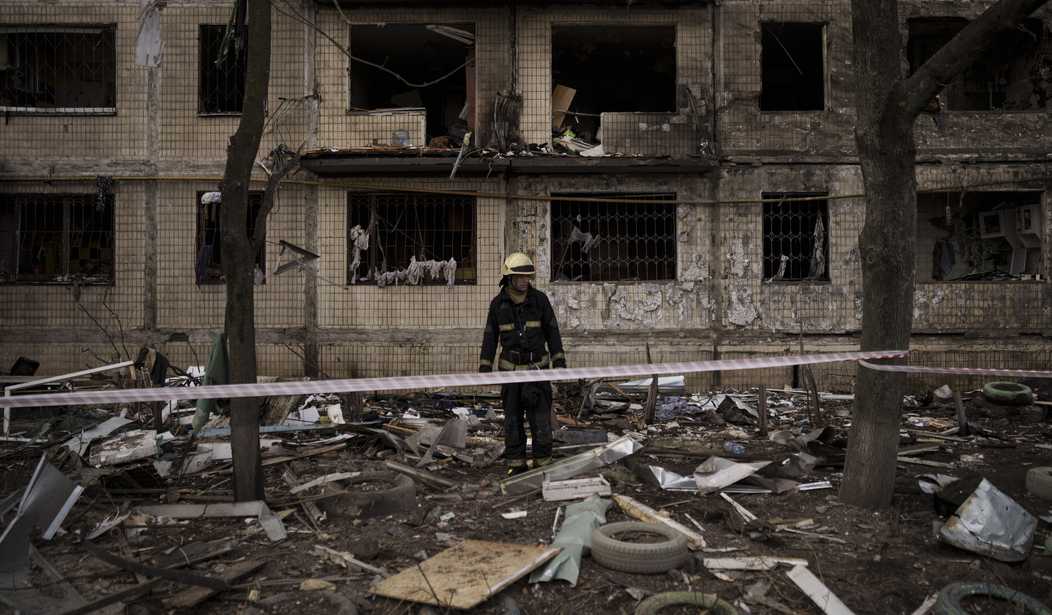Freedom-loving people around the world are supporting Ukraine’s military and its people in their fight against the unprovoked Russian invasion. In line with that support, the international community must closely examine the events that led up to the current situation, with the aim of rectifying any mistakes in foreign policy that may have emboldened Vladimir Putin.
Such reassessment may prevent similar miscalculations in the event of another showdown with the Russian government. But beyond that, it will most likely yield insights into the appropriate policies for dealing with other rogue states, including Russian allies like Iran whose leaders have expressed vocal support for the invasion of Ukraine.
The international sanctions on Russian oligarchs and institutions have been punishing and effective, but they should have been applied as soon as American and European intelligence recognized Putin’s plans for war. If ever Putin sets his sights beyond Ukraine, the international community must act more quickly.
Inaction in the face of rogue states' threats and ultimatums is tantamount to appeasement, and dictators like Putin cannot be expected to act rationally in negotiations over their megalomaniacal aims. It should be clear by now that diplomacy alone could never have dissuaded him from his plans to invade Ukraine. The only chance for successful diplomacy would have been in the presence of coordinated, multilateral, and escalatory economic and political pressure.
Unfortunately, leading world powers like the United States, Britain, Germany, and France have all proven resistance to that lesson. This is clear, for instance, from the four Western nations’ conciliatory approach to ongoing negotiations in Vienna which aim to restore the 2015 Iran nuclear deal known as the Joint Comprehensive Plan of Action. Negotiators have been saying for more than two months that those negotiations were in their final phase, yet Tehran has only strengthened its demands while facing no consequences for the refusal to compromise.
Recommended
Recent developments suggest that this intransigence is now being fueled not only by the Iranian regime’s own experience in dealing with the West, but also by Western powers’ failure to contain Putin. Earlier in March, Iran’s chief negotiator Ali Bagheri-Kani left Vienna for Tehran and many reports suggested it was a sign that the regime was on the brink of agreeing to a draft agreement. But when he returned on Sunday, it was only to reiterate demands for comprehensive, up-front relief from economic sanctions, and to add the new demand for an end to international investigations into the past military dimensions of Iran’s nuclear program.
This, of course, undermines the central purpose of the JCPOA and leaves the door open for Iran’s nuclear threat to grow even stronger. Meanwhile, the ultimatum regarding sanctions relief has the same effect on the regime’s other malign activities, including its repression of domestic dissent and its promotion of terrorism and fundamentalism throughout the globe. In June 2018, a regime plot to bomb a huge opposition rally near Paris was thwarted. And in November 2019, violent crackdown on a domestic uprising killed 1,500 peaceful Iranian protesters and landed thousands of others in jail under torture.
The general lack of conviction in Western policy toward Iran is also reflected in the response – or lack thereof – to that crackdown and the ensuing repression of dissent, which persists to this day. In the aftermath of the 2019 uprising, the judiciary chief, Ebrahim Raisi, oversaw the execution of thousands of political prisoners, including 30,000 during the1988 massacre. Most of them were affiliated with the leading pro-democracy opposition movement, the National Council of Resistance of Iran and Mujahedin-e Khalq. In June 2021, Raisi was installed as president by Supreme Leader Ali Khamenei, in what Amnesty International called a “grim reminder that impunity reigns supreme in Iran.”
That impunity remains practically unchallenged by the international community. Still, Raisi’s promotion only sparked more unrest by brave Resistance Units inside Iran. Since the end of 2019, there have been a half dozen other large anti-regime protests, each of which called for the regime's overthrow and a democratic republic.
The Iranian Resistance movement has already made considerable advances toward regime change. Serious political and logistical support from the international community may be all that is needed to nudge the movement over the finish line. Appeasing the regime will only embolden it to commit more atrocities, thus raising the risk of a more serious and broader conflict.
Lest we forget, Western powers believed they were taking the more cautious path when they avoided exerting pressure on Moscow prior to Putin’s invasion of Ukraine. Clearly, that was a mistake. Democratic nations must exert whatever pressure they can on belligerent, autocratic regimes before their belligerence crosses the threshold. The international community should apply this lesson to Iran policy immediately and throw its support behind the opposition as the sole democratic and peaceful alternative.
Otherwise, they will find themselves struggling to provide that support in the wake of a much greater devastation, just as they are doing in Ukraine today.

























Join the conversation as a VIP Member